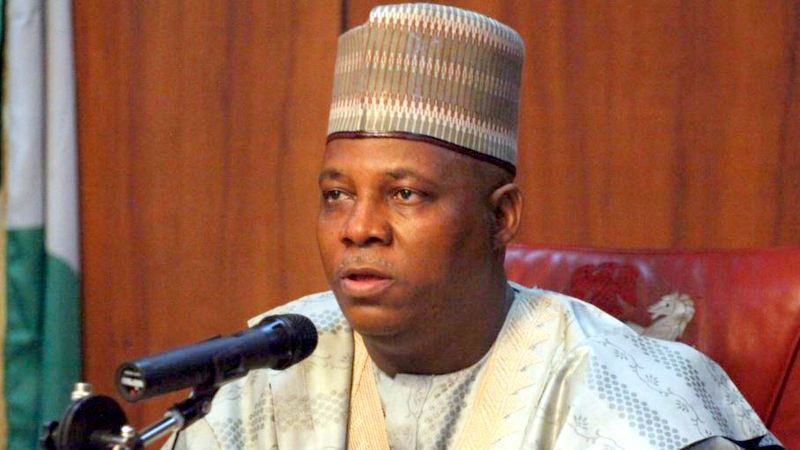
Governor of Borno State, Kashim Shettima has reacted to the circumstances surrounding the decentralization of the Kano Emirate.
Controversies had emerged following Umar Ganduje’s assent to a bill allowing the creation of four first-class Emirate Councils in the state which whittled down the influence of the Emir of Kano, Sanusi Muhammadu Sanusi.
Shettima speaking on the development said there is “nothing special” about the issue of decentralization of Kano Emirate.
Shettima made his position known when the House of Representatives Committee on the Army paid him a visit at the Borno Government house on Wednesday.
“The owner of Tesla was talking about flying Roadsters; while the topical issue in Nigeria now is the Balkanization of Kano Emirate into five emirates, that’s the topical issue; that’s what is bothering us as a people, a relic from the past. What is so special about the Emir for God’s sake?” Shettima asked.
He further added that in years to come, seventy per cent of Nigeria’s population would live in the North.
“Northern Nigeria is always in the news for the wrong reason when there are more important issues that everyone should be worried about.
“It is estimated that by 2050, seventy per cent of Nigeria’s population would live in the North: “with desertification, deforestation, endemic poverty, pervasive illiteracy and 12 million almajiris we have provided the recipe for a perfect storm.
“There can never be peace without development and vice versa. Education provides the best tool for addressing such challenges,” Shettima added.
Meanwhile, DAILY POST had reported that a Kano State High Court Wednesday declared the appointment and the installation of four new emirs by Ganduje as null and void.
Justice Nasiru Saminu gave the ruling following a suit by the plaintiff, Hon. Sule Gwarzo, against the Governor and the state government, for splitting the emirate.
However, Kano State government in a statement by its Attorney General, Barrister Ibrahim Mukhtar, denied reports of the court ruling.
According to Mukthar, the court only said the status quo should be maintained pending the hearing of the substantive suit in the matter.





